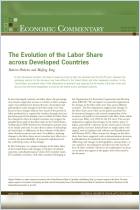Melden Sie sich bei getAbstract an, um die Zusammenfassung zu erhalten.

Melden Sie sich bei getAbstract an, um die Zusammenfassung zu erhalten.
Gad Levanon, Ilaria Maselli and Frank Steemers
Global Labor Market Outlook 2018
Finding Ways to Counteract Worker Shortages
The Conference Board, 2018
Was ist drin?
Global labor is in a state of flux not seen in decades.
Recommendation
In many economies, employers and employees are experiencing a new trend: a shrinking workforce that is significantly altering traditional labor supply and demand dynamics. Forecasters predict a dwindling labor pool through 2030, and that is influencing compensation, technology and workplace environments. In this in-depth analysis, economists Gad Levanon, Ilaria Maselli and Frank Steemers explore the trajectory of labor participation and its effects on people and economies in 2018 and beyond. getAbstract recommends this timely report to executives and policy experts interested in a meticulous examination of global labor ecosystems.
Summary
About the Authors
Gad Levanon, Ilaria Maselli, and Frank Steemers are economists at the Conference Board.

























Comment on this summary